The Anthropolis Colloquium 2021 focuses on Envisioning Sustainable Futures for Urban Mobility. Taking place virtually on the 25/26 March from 9:30-12 and 14:00-16:30 CET each, the Colloquium will address different perspectives and dimensions of urban mobility, its futures, technologies and innovations, and potential contribution to more sustainability and inclusivity.
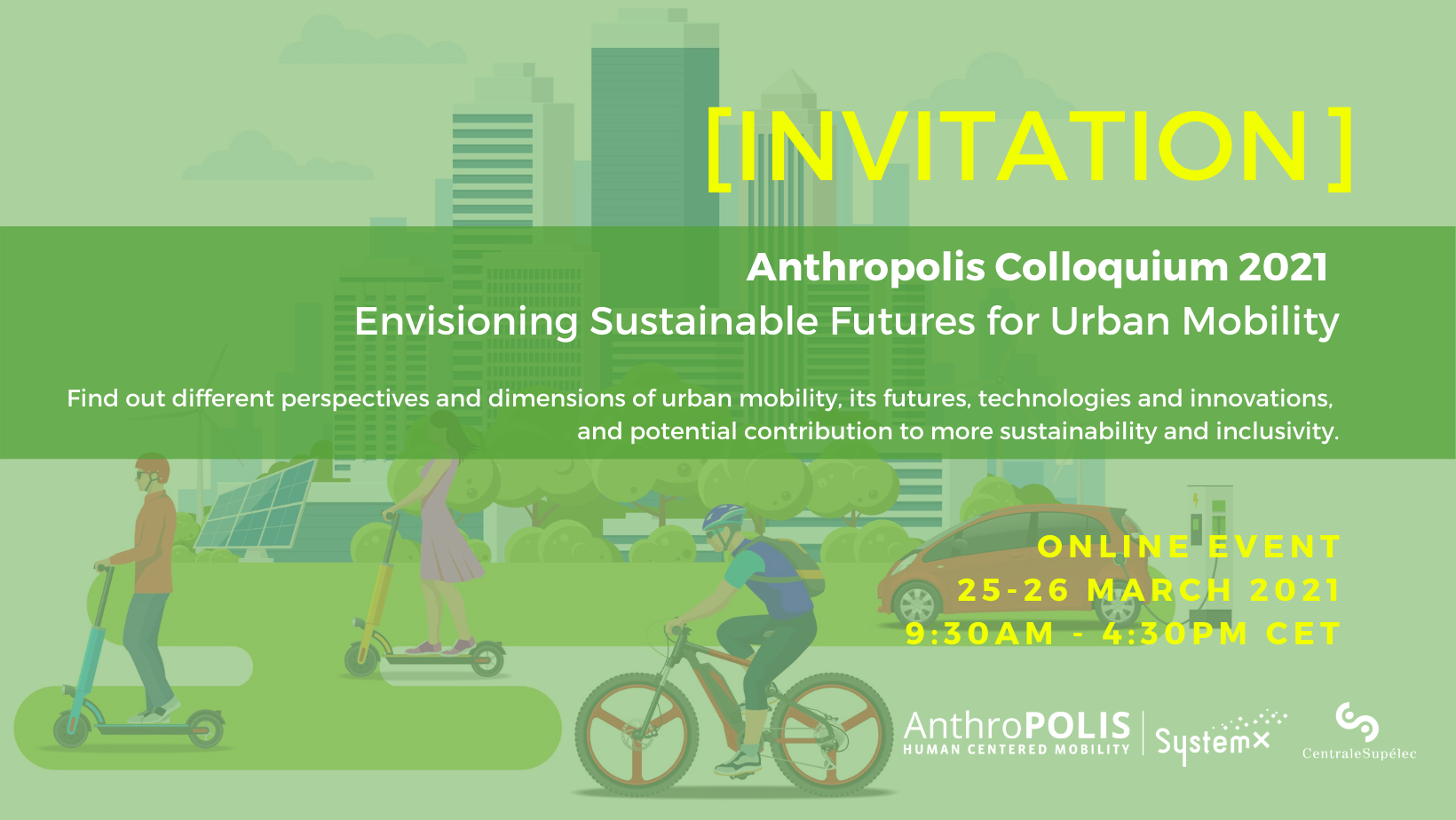
On the first day, the sessions of Urban Mobility Futures and Mobility-as-a-Service in (Re)Evolution: Governance, Business Models & Opportunities will set the context of the colloquium with three keynote presentations, two roundtables, and the presentation of the Anthropolis Chair’s research and vision.
On the second day, the sessions Infrastructures of the Future and Sustainability Challenges for Innovation in Urban Mobility will address innovations and future requirements of physical, digital and virtual mobility infrastructures, and the challenges of sustainability in the field of urban mobility. Four keynote presentations and two roundtables will provide a vast range of input and perspectives, again in contrast to the Chair’s work.
The Colloquium is facilitated through the Anthropolis Chair by IRT SystemX and CentraleSupélec. It brings the partners EDF, Engie, Groupe Renault, Communauté d’Agglomération Paris-Saclay, and Nokia Bell-Labs together to work towards human-centred urban mobility.
The event will be in English only and is free of charge. We invite professionals, academics, researchers, policy makers, and students interested in Urban Mobility to join the discussions. Due to limitations of the numbers of participants, registration is required. Regular updates on the detailed programme and speakers can be found on www.chaire-anthropolis.fr and by signing up to the Chair’s mailing list.
Streaming links
Day 1, 25 March 2021
- Session #1: Urban Mobility Future: https://youtu.be/d8pEuI4-55w
- Session #2: Mobility-as-a-Service in (Re)Evolution: https://youtu.be/f9b0thpyXKM
Day 2, 26 March 2021
- Session #3: Infrastructures of the Future: https://youtu.be/yCjvU56TUV0
- Session #4: Sustainability Challenges for Innovation in Urban Mobility: https://youtu.be/hfVAgYNX2MU
Program
Day 1, 25 March 2021
9:30-10:15 CET
Words of welcome
Patrice Aknin, Scientific Director, IRT SystemX
 Patrice Aknin manages the scientific arm of the Institute by supporting and assisting its scientific growth and coordinating relationships with its partners in public research and higher education. A PhD of Université Paris-Sud and “Habilitation à diriger des Recherches” of the Ecole Normale Supérieure in Cachan, his career was one of research at Inrets, later known as Ifsttar (French Institute of Science and Technology for Transport, Developpement and Networks). In 2008 he was appointed Research Director at Ifsttar. In 2013, he was appointed Scientific Director of the SNCF in the Innovation & Research division, in charge of the group’s doctoral studies, academic partnerships, expert network and innovative design. He is currently a professor at Ecole des Ponts ParisTech.
Patrice Aknin manages the scientific arm of the Institute by supporting and assisting its scientific growth and coordinating relationships with its partners in public research and higher education. A PhD of Université Paris-Sud and “Habilitation à diriger des Recherches” of the Ecole Normale Supérieure in Cachan, his career was one of research at Inrets, later known as Ifsttar (French Institute of Science and Technology for Transport, Developpement and Networks). In 2008 he was appointed Research Director at Ifsttar. In 2013, he was appointed Scientific Director of the SNCF in the Innovation & Research division, in charge of the group’s doctoral studies, academic partnerships, expert network and innovative design. He is currently a professor at Ecole des Ponts ParisTech.
Bernard Yannou, Director of the Industrial Engineering Laboratory (LGI), CentraleSupélec
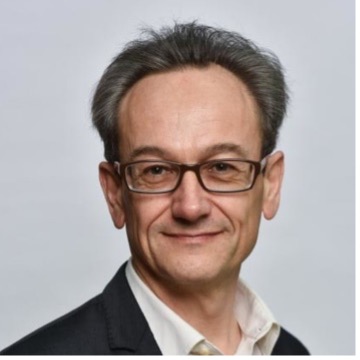 Bernard Yannou is a Distinguished Professor of Engineering Design and Director of the Industrial Engineering Research Department (Laboratoire Génie Industriel, LGI) at CentraleSupélec. He received an M.Sc. (1988) in Mechanical Engineering from Ecole Normale Supérieure of Cachan (ENSC), an M.Sc. (1989) in Computer Science from Paris-6 University, and a Ph.D. (1994) in Industrial Engineering from ENSC. His research interests are design automation, design management / methodologies / new product development, value and user-centered design, artificial intelligence and computers in design, system thinking and engineering, design under uncertainty, decision-based design, innovation engineering, sustainable design, and industrial ecology, and multidisciplinary design optimization.
Bernard Yannou is a Distinguished Professor of Engineering Design and Director of the Industrial Engineering Research Department (Laboratoire Génie Industriel, LGI) at CentraleSupélec. He received an M.Sc. (1988) in Mechanical Engineering from Ecole Normale Supérieure of Cachan (ENSC), an M.Sc. (1989) in Computer Science from Paris-6 University, and a Ph.D. (1994) in Industrial Engineering from ENSC. His research interests are design automation, design management / methodologies / new product development, value and user-centered design, artificial intelligence and computers in design, system thinking and engineering, design under uncertainty, decision-based design, innovation engineering, sustainable design, and industrial ecology, and multidisciplinary design optimization.
Introduction
Jakob Puchinger, Anthropolis Chair Holder at IRT SystemX and CentraleSupélec
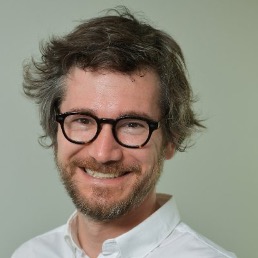 Jakob Puchinger is responsible for the research axis Scientific Computing and Optimization at IRT-SystemX as well as Professor of Industrial Engineering and responsible for the Operations Management team at the Industrial Engineering Research Department at CentraleSupélec and co-director of the Futures Cities Lab at Centrale Pékin. His main research interests are in urban logistics, human centered innovation for urban mobility, disruptive technologies and algorithmic optimization of the underlying transport systems. After completing his doctoral studies at the TU Vienna in 2006, Jakob Puchinger worked at the NICTA Research Centre at the University of Melbourne. He joined the Austrian Institute of Technology in 2008 where he became head of the business unit Dynamic Transportation Systems in 2014. Jakob Puchinger additionally held a position as external lecturer at TU Vienna, regularly offering a course on optimization methods for transport logistics. Jakob Puchinger is the author of more than 70 scientific publications.
Jakob Puchinger is responsible for the research axis Scientific Computing and Optimization at IRT-SystemX as well as Professor of Industrial Engineering and responsible for the Operations Management team at the Industrial Engineering Research Department at CentraleSupélec and co-director of the Futures Cities Lab at Centrale Pékin. His main research interests are in urban logistics, human centered innovation for urban mobility, disruptive technologies and algorithmic optimization of the underlying transport systems. After completing his doctoral studies at the TU Vienna in 2006, Jakob Puchinger worked at the NICTA Research Centre at the University of Melbourne. He joined the Austrian Institute of Technology in 2008 where he became head of the business unit Dynamic Transportation Systems in 2014. Jakob Puchinger additionally held a position as external lecturer at TU Vienna, regularly offering a course on optimization methods for transport logistics. Jakob Puchinger is the author of more than 70 scientific publications.
10:15-12:00 CET
Urban Mobility Future
The first session sets the scene of the colloquium with a broader perspective into possible mobility futures and ways to explore or shape them. The perspective revolves around urban mobility in the context of urban life(styles), socio-technical transitions, and human-centred approaches.
Keynote : Futuring Mobilities in Times of Uncertainty
The development of urban mobility can in many ways be said to be the key determinant factor for the development of urban morphologies. The ways in which cities have grown and developed is a function of Mobilities systems and infrastructural landscapes connecting (and dis-connecting) urban nodes and agglomeration in a complex geography of proximity and connectivity. With the advent of automated technologies and networked digital network technologies the future of urban mobility seems borderless. Yet, in the sobering midst of COVID-19 the world has come to if not a halt then at least a pause, and questions about future trajectories and development patterns have fueled heated public debates. This presentation will shortly discuss the role of urban Mobilities as a vital force of the network city. Then a discussion about futures and utopian imaginaries will follow as a framework for how to think about futures. COVID-19 as a globally disruptive event will then be discussed and finally some speculative reflections on whereto this might lead is offered.
Ole B. Jensen, Professor of Urban Theory, Aalborg University (Denmark)
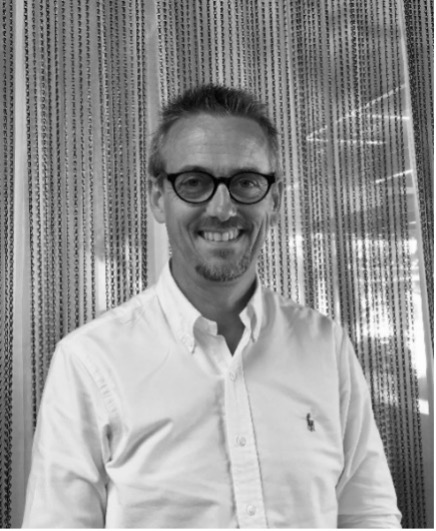 Ole B. Jensen is Professor of Urban Theory at the Department of Architecture, Design and Media Technology, Aalborg University (Denmark). He is deputy director and co-founder of the Centre for Mobilities and Urban Studies (C-MUS). He is the author of Staging Mobilities, Routledge, 2013, and Designing Mobilities, 2014, Aalborg University Press, the Editor of the four-volume collection Mobilities, Routledge, 2015, and author (with Ditte Bendix Lanng) of Mobilities Design. Urban Designs for Mobile Situations, 2017, Routledge, co-editor of the Routledge Handbook of Urban Mobilities, 2020 (with Claus Lassen, Ida S.G. Larsen, Malene Freudendal-Pedersen and Vincent Kaufman), and Det Epidemiske Samfund (The Pandemic Society), 2020, Hans Reitzel (with Nikolaj Schultz).
Ole B. Jensen is Professor of Urban Theory at the Department of Architecture, Design and Media Technology, Aalborg University (Denmark). He is deputy director and co-founder of the Centre for Mobilities and Urban Studies (C-MUS). He is the author of Staging Mobilities, Routledge, 2013, and Designing Mobilities, 2014, Aalborg University Press, the Editor of the four-volume collection Mobilities, Routledge, 2015, and author (with Ditte Bendix Lanng) of Mobilities Design. Urban Designs for Mobile Situations, 2017, Routledge, co-editor of the Routledge Handbook of Urban Mobilities, 2020 (with Claus Lassen, Ida S.G. Larsen, Malene Freudendal-Pedersen and Vincent Kaufman), and Det Epidemiske Samfund (The Pandemic Society), 2020, Hans Reitzel (with Nikolaj Schultz).
Roundtable discussion
The first roundtable discussion, moderated by Flore Vallet, will provide an interdisciplinary perspective on urban mobility futures. Some of the questions will be how urban lifestyles evolve and which impacts arise for urban mobility. Further, the long-term impacts of COVID-19 on mobility will be elaborated. An outlook on emerging technologies and approaches to localise and implement the sustainable mobility transition will set the scene for the colloquium.
Moderated by Flore Vallet, Senior Researcher, Anthropolis Chair
 Researcher on Human Centered Design at IRT SystemX and Assistant Professor at CentraleSupélec. Before, she was assistant professor at the Mechanical Systems Engineering Department of the Université de Technologie de Compiègne (UTC). She graduated in mechanical engineering design at the ENS Cachan (1993), and obtained a Master’s degree in industrial design from UTC in 1999. In 2012, she completed a PhD on the dimensions of eco-design practices towards education of engineering designers. She is a member of the French EcoSD (Eco-Conception de Systèmes Durables) network and of the Design Society. Her fields of interest are practices of eco-design and eco-innovation in industry and for education, human centered approaches in design and eco-design.
Researcher on Human Centered Design at IRT SystemX and Assistant Professor at CentraleSupélec. Before, she was assistant professor at the Mechanical Systems Engineering Department of the Université de Technologie de Compiègne (UTC). She graduated in mechanical engineering design at the ENS Cachan (1993), and obtained a Master’s degree in industrial design from UTC in 1999. In 2012, she completed a PhD on the dimensions of eco-design practices towards education of engineering designers. She is a member of the French EcoSD (Eco-Conception de Systèmes Durables) network and of the Design Society. Her fields of interest are practices of eco-design and eco-innovation in industry and for education, human centered approaches in design and eco-design.
Marie Sevenet, European Institut for Energy Research. (founded by EDF and the KIT)
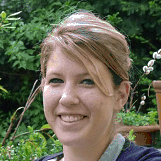 Dr. Marie Sevenet received her diploma in Geography and Urban Planning from the University of Nice Sophia Antipolis (France) in 2005. Since 2010, she has been working as a researcher at the European Institute for Energy Research (EIFER) in Karlsruhe in the field of modeling and simulation of energy in urban planning. In 2013, she defended her Doctoral Thesis at the University of the Nice Sophia Antipolis (France) on the impact of urban form in 3D on the sustainability. At her work at EIFER she is developing new spatial methodology based on GIS and statistics for two activities. She is working on several methodologies to well understanding the energy problematic in the urban planning. Her main thematic are spatial analysis and modelling, urban model, mobility & accessibility and fuel poverty. On those topics, she has contributed to several EDF R&D projects and Public Funded project at European and National Level.
Dr. Marie Sevenet received her diploma in Geography and Urban Planning from the University of Nice Sophia Antipolis (France) in 2005. Since 2010, she has been working as a researcher at the European Institute for Energy Research (EIFER) in Karlsruhe in the field of modeling and simulation of energy in urban planning. In 2013, she defended her Doctoral Thesis at the University of the Nice Sophia Antipolis (France) on the impact of urban form in 3D on the sustainability. At her work at EIFER she is developing new spatial methodology based on GIS and statistics for two activities. She is working on several methodologies to well understanding the energy problematic in the urban planning. Her main thematic are spatial analysis and modelling, urban model, mobility & accessibility and fuel poverty. On those topics, she has contributed to several EDF R&D projects and Public Funded project at European and National Level.
Noémie Aubron, La Mutante
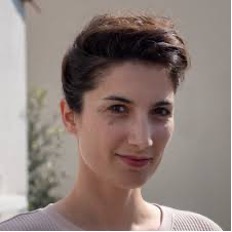 Noémie Aubron is a French content creator passionately trying to connect fiction, prospective and collective strategy. She helps individuals and organisations think about their future(s) through fiction.
Noémie Aubron is a French content creator passionately trying to connect fiction, prospective and collective strategy. She helps individuals and organisations think about their future(s) through fiction.
Sébastian Goethals, Managing Director, Citilinks
 Sebastien Goethals is an urban planner, architect and urban mobility entrepreneur from Belgium that has worked globally on the physical and digital transformation of urban environments with a people-centered approach.
Sebastien Goethals is an urban planner, architect and urban mobility entrepreneur from Belgium that has worked globally on the physical and digital transformation of urban environments with a people-centered approach.
He has founded Citilinks in Shanghai and Rotterdam to build multidisciplinary teams working on the integration of mobility systems, design innovation, seamless intermodality, street metabolism and urban governance at various levels in East Asia, Europe and Africa. He advises and delivers projects and studies for municipalities, mobility service platforms, industries and transport authorities in terms of adequate transport policies, sustainable mobility planning, mass transit, automation, shared-used vehicles and multimodal solutions from a design-sensitive angle. He has been director of technical assistance of ISOCARP from 2017 to 2020.
Tjark Gall, PhD Candidate Urban Mobility Futures, Anthropolis Chair
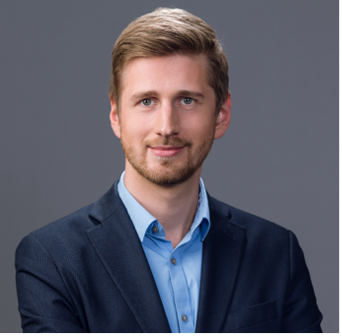 Tjark Gall is pursuing a PhD on the topic of developing human-centred scenarios of Urban Mobility Futures. He is an urbanist with a strong interest in urban development, climate change impacts for urban residents, and the effective use and visualisation of urban data to strengthen evidence-based decision- and policymaking. He obtained a MSc Urban Management and Development Studies course at IHS, Erasmus University Rotterdam (NL), and MSc Architecture at the Technical University of Brunswick (GER).
Tjark Gall is pursuing a PhD on the topic of developing human-centred scenarios of Urban Mobility Futures. He is an urbanist with a strong interest in urban development, climate change impacts for urban residents, and the effective use and visualisation of urban data to strengthen evidence-based decision- and policymaking. He obtained a MSc Urban Management and Development Studies course at IHS, Erasmus University Rotterdam (NL), and MSc Architecture at the Technical University of Brunswick (GER).
Before starting his doctoral research, he worked as project manager for the research branch of the International Society of City and Regional Planners (ISOCARP) on the EU H2020 Project +CityxChange. His research interest and publications span urban mobility, futures studies, social sustainability, indicator-based assessments, mapping of risk, and development frameworks.
14:00-16:30 CET
Governance, Business Models & Opportunities
The second session centres around Mobility-as-a-Service (MaaS) as one of the solutions that illustrate Urban Mobility Futures. However, we need to push the analysis and methods to identify and evaluate the pitfalls of MaaS: Economic barriers, regulatory issues, policy development and user adoption. The conceptualisation of MaaS has not yet settled. The tension in its definition remains ongoing as researchers and industrials continue to identify the implications of this integrated sustainable (shared) mobility approach to existing mobility demand-supply regimes.
Keynote: How to shape a mobility of the future which serves general interest? Potential emerging mobility services with automated vehicles and their related ecosystems in cities
Sustainable mobility is a main concern of citizens and a key success factor to succeed in meeting the goal of sustainable development. Platform economy and automated vehicles could revolutionise mobility and make cities more sustainable and resilient. However, first research papers show that, depending on the followed governance, the expected sustainability impact, could be improved or worsened. Aim of this article is to analyse which mobility concepts should be followed to serve best the general interest and anticipate “the winner takes it all “effects” which cannot be undone later. In a first step, the principles of the internet economy and in particular platform economy and customer/passenger/citizen centric approaches are analysed to understand how value and positive or negative externalities can be created and assessed qualitatively. Furthermore, it will be analysed under which circumstances potential benefits could be privatised and the costs socialised to the detriment of the public interest or not. In a second step, these findings are applied to the transport sector where digitalisation and in particular Mobility as a Service (MaaS) and automated vehicles (AV) can be seen as game changer. Four possible scenarios of future passenger transports in cities are then developed, evaluated and discussed with the beforementioned qualitative criteria. The article shows that an integration of AV into an intermodal MaaS, where public and private platforms integrate seamless transport offerings produces the most benefits for the cities and their citizens. Besides, two conditions for this emergence are emphasized: regulation and Standards (Open Data and APIs).
Guy Fournier, Professor affiliated to Pforzheim University, Institute for Industrial Ecology (Germany) and Université Paris-Saclay, CentraleSupélec, Laboratoire Génie Industriel (France)
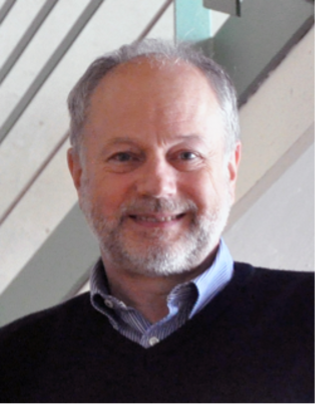 Guy Fournier is Professor affiliated to Pforzheim University in Germany and an expert in sustainable mobility. French born and equipped with a German Doctorate Degree; he has worked primarily in the technology sector in several countries in Europe prior to joining academia. His core interest and expertise rests within international economy, sustainable development and new innovative business models with electric vehicles and autonomous vehicles. He has guided municipalities and companies of German industry towards more eco-friendly and sustainable approaches to energy consumption and mobility, engaging users and producers of cars and to make mobility truly sustainable and economically viable. He is currently working on a Horizon project to design and carry out full scale demonstrations of urban transport automation by deploying, for the first time worldwide, fleets of autonomous mini-buses in low to medium demand areas of 4 European demonstrator cities: Geneva, Lyon, Copenhagen and Luxembourg, and 3 replicator cities. In 2012 he got the Award of excellence in teaching from the engineering faculty and the University of Applied Sciences in Pforzheim and in 1994 the Award of best PhD in Germany from SEL-Alcatel Stiftung für Kommunikationsforschung (Stuttgart). He was responsible for international development of the Engineering faculty and author of many contributions to journals and books.
Guy Fournier is Professor affiliated to Pforzheim University in Germany and an expert in sustainable mobility. French born and equipped with a German Doctorate Degree; he has worked primarily in the technology sector in several countries in Europe prior to joining academia. His core interest and expertise rests within international economy, sustainable development and new innovative business models with electric vehicles and autonomous vehicles. He has guided municipalities and companies of German industry towards more eco-friendly and sustainable approaches to energy consumption and mobility, engaging users and producers of cars and to make mobility truly sustainable and economically viable. He is currently working on a Horizon project to design and carry out full scale demonstrations of urban transport automation by deploying, for the first time worldwide, fleets of autonomous mini-buses in low to medium demand areas of 4 European demonstrator cities: Geneva, Lyon, Copenhagen and Luxembourg, and 3 replicator cities. In 2012 he got the Award of excellence in teaching from the engineering faculty and the University of Applied Sciences in Pforzheim and in 1994 the Award of best PhD in Germany from SEL-Alcatel Stiftung für Kommunikationsforschung (Stuttgart). He was responsible for international development of the Engineering faculty and author of many contributions to journals and books.
Keynote: MaaS… what now? Identified challenges in the development of Mobility as a Service
Maxime Audouin, Mobility researcher and Head of Digital and Innovation Lab at Groupe Keolis
 Maxime Audouin is known for his previous research on smart mobility governance. He has authored several publications including « The Governance of Smart Mobility » (Springer, 2018); and « The development of Mobility-as-a-Service in the Helsinki metropolitan area: A multi-level governance analysis », in Research in Transportation Business and Management (2018). In His PhD, conducted in the Chaire Management of Network Industries at EPFL, headed by Prof. Finger, he looked through a qualitative and case-based inquiry at the roles public authorities are playing in the development MaaS-like schemes, using governance and socio technical transition literatures. He now works in the private sector as head of the Digital and Innovation Lab for Keolis Group.
Maxime Audouin is known for his previous research on smart mobility governance. He has authored several publications including « The Governance of Smart Mobility » (Springer, 2018); and « The development of Mobility-as-a-Service in the Helsinki metropolitan area: A multi-level governance analysis », in Research in Transportation Business and Management (2018). In His PhD, conducted in the Chaire Management of Network Industries at EPFL, headed by Prof. Finger, he looked through a qualitative and case-based inquiry at the roles public authorities are playing in the development MaaS-like schemes, using governance and socio technical transition literatures. He now works in the private sector as head of the Digital and Innovation Lab for Keolis Group.
Roundtable discussion
The second roundtable discussion, moderated by Jakob Puchinger will be the opportunity to open the discussion on the current and future challenges Mobility as a Service faces.The discussion will approach the challenges of MaaS from the academic and business perspective. The guests of the roundtable will share their expectations and experiences with MaaS from their field of work. Some of the topics that will nourish the discussion turn around the collaboration requirements between stakeholders in order to consolidate a strong MaaS solution and the existing regulatory gaps regarding infrastructure, data and other issues.
Roundtable discussion moderated by Jakob Puchinger, Anthropolis Chair Holder at IRT SystemX and CentraleSupélec
 Jakob Puchinger is responsible for the research axis Scientific Computing and Optimization at IRT-SystemX as well as Professor of Industrial Engineering and responsible for the Operations Management team at the Industrial Engineering Research Department at CentraleSupélec and co-director of the Futures Cities Lab at Centrale Pékin. His main research interests are in urban logistics, human centered innovation for urban mobility, disruptive technologies and algorithmic optimization of the underlying transport systems. After completing his doctoral studies at the TU Vienna in 2006, Jakob Puchinger worked at the NICTA Research Centre at the University of Melbourne. He joined the Austrian Institute of Technology in 2008 where he became head of the business unit Dynamic Transportation Systems in 2014. Jakob Puchinger additionally held a position as external lecturer at TU Vienna, regularly offering a course on optimization methods for transport logistics. Jakob Puchinger is the author of more than 70 scientific publications.
Jakob Puchinger is responsible for the research axis Scientific Computing and Optimization at IRT-SystemX as well as Professor of Industrial Engineering and responsible for the Operations Management team at the Industrial Engineering Research Department at CentraleSupélec and co-director of the Futures Cities Lab at Centrale Pékin. His main research interests are in urban logistics, human centered innovation for urban mobility, disruptive technologies and algorithmic optimization of the underlying transport systems. After completing his doctoral studies at the TU Vienna in 2006, Jakob Puchinger worked at the NICTA Research Centre at the University of Melbourne. He joined the Austrian Institute of Technology in 2008 where he became head of the business unit Dynamic Transportation Systems in 2014. Jakob Puchinger additionally held a position as external lecturer at TU Vienna, regularly offering a course on optimization methods for transport logistics. Jakob Puchinger is the author of more than 70 scientific publications.
Julia Janke, Researcher at Ecole des Ponts ParisTech (ENPC) in charge of the project « MaaS as a regulatory tool »
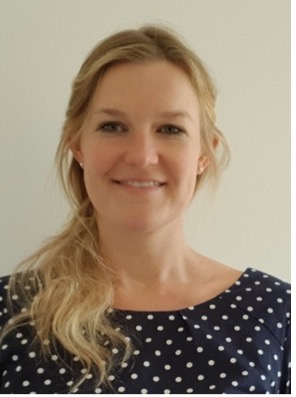 Julia joined the LVMT (Laboratoire Ville Mobilité Transport) and LATTS (Laboratoire Techniques, Territoires et Sociétés) in October 2020 as a researcher and post doc as part of the Research Chair “Regulation of the city of tomorrow” between École des Ponts ParisTech and RATP group. In this projet, she compiles a census of MaaS platforms and develops methods and instruments to evaluate the impact of MaaS platforms on urban transport systems. This project is co-directed by Virginie Boutueil (LVMT, ENPC) and François-Mathieu Poupeau (LATTS, CNRS). Previously, Julia obtained her PhD in transport economics and planning at the University of Technology in Vienna (Austria) and studied travel behavior change as a one-year guest researcher at the Institute of Transportation Studies at the University of California (Davis, US).
Julia joined the LVMT (Laboratoire Ville Mobilité Transport) and LATTS (Laboratoire Techniques, Territoires et Sociétés) in October 2020 as a researcher and post doc as part of the Research Chair “Regulation of the city of tomorrow” between École des Ponts ParisTech and RATP group. In this projet, she compiles a census of MaaS platforms and develops methods and instruments to evaluate the impact of MaaS platforms on urban transport systems. This project is co-directed by Virginie Boutueil (LVMT, ENPC) and François-Mathieu Poupeau (LATTS, CNRS). Previously, Julia obtained her PhD in transport economics and planning at the University of Technology in Vienna (Austria) and studied travel behavior change as a one-year guest researcher at the Institute of Transportation Studies at the University of California (Davis, US).
Aurélien Belhocine, Head of contracts, partnerships and digital services at Ile-de-France Mobilités
 Aurélien Belhocine is in charge of contracts and partnerships for MaaS projects at Île-de-France Mobilités. His mission is to bring the various stakeholders together and to put in place the right contracts within the MaaS ecosystem. He has a master’s degree on Metropolitan Strategy and Governance at SciencesPo Bordeaux and prior to joining île-de-France Mobilités, Aurélien worked in the smart city and urban A.I field with the startup Qucit.
Aurélien Belhocine is in charge of contracts and partnerships for MaaS projects at Île-de-France Mobilités. His mission is to bring the various stakeholders together and to put in place the right contracts within the MaaS ecosystem. He has a master’s degree on Metropolitan Strategy and Governance at SciencesPo Bordeaux and prior to joining île-de-France Mobilités, Aurélien worked in the smart city and urban A.I field with the startup Qucit.
Ashvar Abdoul Haime, Project lead at EDF
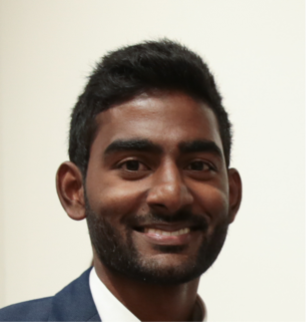 Ashvar Abdoul Haime, Project Lead on Autonomous & Electric Mobility at Electricity of France (EDF), is currently working on hot topics such as autonomous vehicles, autonomous charging technologies, charging infrastructure and related services. Ashvar holds a master degree in Electric and Electronics Engineering at École Polytechnique Fédérale de Lausanne (EPFL). Prior to joining EDF, he worked in R&D, Energy sector Consulting and in the Startup Ecosystem.
Ashvar Abdoul Haime, Project Lead on Autonomous & Electric Mobility at Electricity of France (EDF), is currently working on hot topics such as autonomous vehicles, autonomous charging technologies, charging infrastructure and related services. Ashvar holds a master degree in Electric and Electronics Engineering at École Polytechnique Fédérale de Lausanne (EPFL). Prior to joining EDF, he worked in R&D, Energy sector Consulting and in the Startup Ecosystem.
Mariana Reyes, PhD Candidate at Anthropolis Chair – IRT SystemX and LGI, CentraleSupélec
 Researcher and PhD candidate on “Mobility as a Service: Concepts, governance and business models.” Mariana has a degree in Architecture and a diploma in Urban Planning and Management of Metropolitan Mobility in Mexico. She joined the Chair in November 2020, after completing a MSc in Urban Planning, Transportation and Mobility at the Ecole d’Urbanisme de Paris (UGE-ENPC) with the research topic of “Governance of Mobility as a Service and its effects on public transport systems”.
Researcher and PhD candidate on “Mobility as a Service: Concepts, governance and business models.” Mariana has a degree in Architecture and a diploma in Urban Planning and Management of Metropolitan Mobility in Mexico. She joined the Chair in November 2020, after completing a MSc in Urban Planning, Transportation and Mobility at the Ecole d’Urbanisme de Paris (UGE-ENPC) with the research topic of “Governance of Mobility as a Service and its effects on public transport systems”.
Day 2, 26 March 2021
9:30-12:00 CET
Infrastructures of the future
The first session on the second day shines light on the requirements on the virtual, digital, and physical of the infrastructures of the future. Guiding questions are how to integrate various infrastructures layers to make them more safe, shareable, and resilient. Further, crucial infrastructures for enabling particular innovations such as MaaS are discussed.
Keynote: Governing Transport in the Algorithmic Age
Katja Schechtner will explore where automated decision-making systems impact transport activity, and how. More and more transport activity is influenced by digital infrastructures and algorithms. Automated decision-making is taking a hold in areas from health care and housing to media and mobility. In transport, algorithms are a core feature for services from public transport scheduling to routing apps, bicycle sharing to self-driving technology, parcel delivery to the dispatching of ride services. How can policy makers ensure mobility driven by algorithmic code supports societal objectives?
Katja Schechtner, Research Fellow, MIT Senseable City Lab and Visiting Professor, HDM Stuttgart
 Katja Schechter is an Urban Scientist at OECD and MIT and recent Finalist at Fast Company Award 2018 World Changing Ideas with the project ADB Pedicab – Buddha Pedal Power. She works as an Urban Scientist at OECD in Paris, as a researcher at MIT Media Lab and as a speaker and consultant across Asia, Europe and the US. With homes in Vienna, Paris and Boston, she is a global urban nomad, bringing together people and bridging cultures – in science.
Katja Schechter is an Urban Scientist at OECD and MIT and recent Finalist at Fast Company Award 2018 World Changing Ideas with the project ADB Pedicab – Buddha Pedal Power. She works as an Urban Scientist at OECD in Paris, as a researcher at MIT Media Lab and as a speaker and consultant across Asia, Europe and the US. With homes in Vienna, Paris and Boston, she is a global urban nomad, bringing together people and bridging cultures – in science.
Keynote: Digital Infrastructure – the key for future mobility solutions
Martin Dirnwöber, Business Unit Digital Infrastructure & Data, Austria Tech
 Rapid development in areas such as Automated Driving, Shared Mobility or Mobility as a Service will facilitate new and promising mobility solutions. Coordination will be essential to fully exploit the potential of these solutions and to avoid negative effects. This presentation will address Digital Infrastructure as a key element for coordination and support of new mobility solutions.
Rapid development in areas such as Automated Driving, Shared Mobility or Mobility as a Service will facilitate new and promising mobility solutions. Coordination will be essential to fully exploit the potential of these solutions and to avoid negative effects. This presentation will address Digital Infrastructure as a key element for coordination and support of new mobility solutions.
Roundtable discussion
During the third roundtable discussion, moderated by Jakob Puchinger, participants will share their vision on how future mobility infrastructures will look like, what technologies will they rely on, what are the challenges that they are facing; the interdependence between the different infrastructures such as mobility and power systems; distribution of roles between digital/physical infrastructure and moving vehicles and how to improve the resilience of the increasingly complex mobility infrastructure. All within a context of human centered approach whose objective is primarily to benefit the users.
Roundtable discussion moderated by Jakob Puchinger, Anthropolis Chair Holder at IRT SystemX and CentraleSupélec
 Jakob Puchinger is responsible for the research axis Scientific Computing and Optimization at IRT-SystemX as well as Professor of Industrial Engineering and responsible for the Operations Management team at the Industrial Engineering Research Department at CentraleSupélec and co-director of the Futures Cities Lab at Centrale Pékin. His main research interests are in urban logistics, human centered innovation for urban mobility, disruptive technologies and algorithmic optimization of the underlying transport systems. After completing his doctoral studies at the TU Vienna in 2006, Jakob Puchinger worked at the NICTA Research Centre at the University of Melbourne. He joined the Austrian Institute of Technology in 2008 where he became head of the business unit Dynamic Transportation Systems in 2014. Jakob Puchinger additionally held a position as external lecturer at TU Vienna, regularly offering a course on optimization methods for transport logistics. Jakob Puchinger is the author of more than 70 scientific publications.
Jakob Puchinger is responsible for the research axis Scientific Computing and Optimization at IRT-SystemX as well as Professor of Industrial Engineering and responsible for the Operations Management team at the Industrial Engineering Research Department at CentraleSupélec and co-director of the Futures Cities Lab at Centrale Pékin. His main research interests are in urban logistics, human centered innovation for urban mobility, disruptive technologies and algorithmic optimization of the underlying transport systems. After completing his doctoral studies at the TU Vienna in 2006, Jakob Puchinger worked at the NICTA Research Centre at the University of Melbourne. He joined the Austrian Institute of Technology in 2008 where he became head of the business unit Dynamic Transportation Systems in 2014. Jakob Puchinger additionally held a position as external lecturer at TU Vienna, regularly offering a course on optimization methods for transport logistics. Jakob Puchinger is the author of more than 70 scientific publications.
Adam F. Abdin, Future Cities Lab – Centrale Pekin – CentraleSupélec
 Adam F. Abdin is currently a Post-Doctoral Research Fellow within the Future Cities Lab., a joint research lab at Centrale Pékin, in collaboration with Beihang University and CentraleSupélec. He is also attached to the research group on “Risk and Resilience of Complex Systems” at the Laboratory of Industrial Engineering, CentraleSupélec, University Paris-Saclay, France. Adam F. Abdin’s research is focused on developing techno-economic modeling and optimization frameworks for improving the resilience of complex engineering systems, critical infrastructure systems and interdependent systems, against failures. Most notably, the development of methodological frameworks combining data analytics approaches and robust optimization techniques to improve the robustification and emergency response strategies of infrastructure systems against different hazards. Adam F. Abdin obtained his Ph.D. degree in Engineering of Complex Systems from CentreSupélec, University Paris-Saclay, for the research work done within the “Chair on Complex Systems and the Energy Challenge” of the European Foundation for New Energy of Electricite de France (EDF).
Adam F. Abdin is currently a Post-Doctoral Research Fellow within the Future Cities Lab., a joint research lab at Centrale Pékin, in collaboration with Beihang University and CentraleSupélec. He is also attached to the research group on “Risk and Resilience of Complex Systems” at the Laboratory of Industrial Engineering, CentraleSupélec, University Paris-Saclay, France. Adam F. Abdin’s research is focused on developing techno-economic modeling and optimization frameworks for improving the resilience of complex engineering systems, critical infrastructure systems and interdependent systems, against failures. Most notably, the development of methodological frameworks combining data analytics approaches and robust optimization techniques to improve the robustification and emergency response strategies of infrastructure systems against different hazards. Adam F. Abdin obtained his Ph.D. degree in Engineering of Complex Systems from CentreSupélec, University Paris-Saclay, for the research work done within the “Chair on Complex Systems and the Energy Challenge” of the European Foundation for New Energy of Electricite de France (EDF).
Eric Lacombe, Nokia Bell Labs
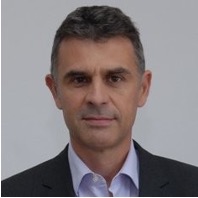
Yann Briand, Innovation and R&D manager – Mobility sector leader at IRT SystemX
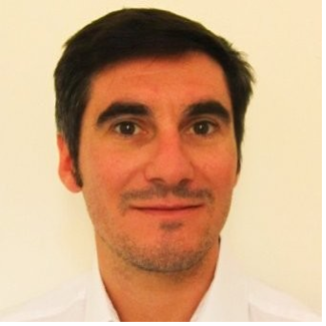
Edgar Ke, Mobility Innovation and Deeptech Startups at Nokia Bell Labs and Anthropolis chair
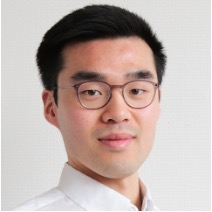
Tarek Couaki,PhD Candidate at Anthropolis Chair – IRT SystemX and LGI, CentraleSupélec
14:00-16:30 CET
Sustainability Challenges for Innovation in Urban Mobility
The last session zooms out again and explores what possibilities exist to evaluate the sustainability of emerging mobility modes and their infrastructures, and what the societal impacts associated with mobility data are. Lastly, a guiding question will be the challenge how to balance between efficiency and sufficiency of mobility systems.
Keynote: Sustainable mobility through business action
Sustainable transport is a key challenge for achieving the Sustainable Development Goals and global climate targets for the coming years. Businesses are essential to tackle this challenge. Companies can reduce scope 3 emissions and costs and become more attractive employers by encouraging sustainable commuting options. They are also key stakeholders in transforming fleets and in tackling transport demand.
Milena Klasing Chen, Manager, Mobility, World Business Council For Sustainable Development (WBCSD), Switzerland
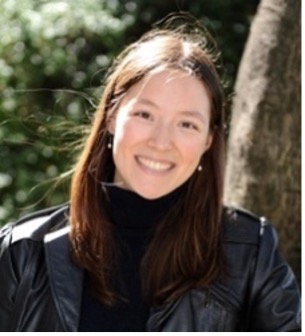 Milena Klasing Chen is Manager for Mobility at the World Business Council for Sustainable Development. Together with more than 200 leading businesses, she works to accelerate the transition to a sustainable world. She holds a PhD in innovation management and has contributed to develop innovation models for low cost design and to research on public transport. She is the author of “Innover avec le low cost. Le cas du transport public” (Presses des Mines, 2017)
Milena Klasing Chen is Manager for Mobility at the World Business Council for Sustainable Development. Together with more than 200 leading businesses, she works to accelerate the transition to a sustainable world. She holds a PhD in innovation management and has contributed to develop innovation models for low cost design and to research on public transport. She is the author of “Innover avec le low cost. Le cas du transport public” (Presses des Mines, 2017)
Keynote: The challenges for Hydrogen Mobility: Combining Local and Global Cooperation
Hydrogen plans across Europe select as one of their priorities the use of hydrogen for mobility, more specifically for heavy and light duty vehicles (trucks, buses, trains, light commercial vehicles…). This choice seems quite judicious; it is in this type of segments that hydrogen has advantages over batteries. Ongoing projects are most often developing around regional clusters, whose analysis highlights two challenges: the high fixed costs of the infrastructure on the one hand, and the high purchasing cost of vehicles on the other, whereas the question of the cost of hydrogen is much less critical than for industrial uses.
The first challenge must be solved locally by ensuring sufficient and predictable demand, for example by setting up supply-demand partnerships such as the Hype cab company in Paris, which brings together the cab operator, the hydrogen supplier Air Liquide, and Toyota, which supplies the vehicles. Except for this very special case, many regional programs suffer structurally from a lack of coordination between the implementation of the infrastructure and the potential users. Encouraging the pooling of uses is particularly welcome, but it is complex to implement because the businesses may be so different. Money is not necessarily the keystone.
The challenge of the high cost of hydrogen vehicles – a diesel bus, for example, costs €210k, a battery bus about twice that and a hydrogen bus three times that – cannot be solved locally. Meeting this challenge calls for a national, and more likely European, approach to generate enough volume to lower the cost of vehicles by relying on manufacturers. This calls for a remark. While Europe has major players in certain critical components (fuel cells, high-pressure tanks), European carmakers are slow to invest in hydrogen. Their priority commitment is to battery-powered electric vehicles. How can we create incentives for them to invest in another technology, knowing that they are also facing a crisis?
Jean-Pierre Ponssard, CNRS-CREST Ecole Polytechnique | Chair Energy and Prosperity
 Jean-Pierre Ponssard is emeritus research director at CNRS and associate research fellow at CIRANO. His fields of research concern economics of environment, industrial organization, and game theory. He recently co-edited two books Corporate Social Responsibility: from Compliance to Opportunity (with Patricia Crifo) and Economie du climat : Pistes pour l’après Kyoto (with Olivier Godard). Jean-Pierre Ponssard was professor of economics at Ecole Polytechnique and the head of the Laboratoire d’économétrie. He currently leads the “Business Sustainability” Research Project at Europlace Institute of Finance (EIF). In 2010 he received the excellence award from CNRS. He holds a PhD from Stanford University, and an engineer degree from Ecole Polytechnique.
Jean-Pierre Ponssard is emeritus research director at CNRS and associate research fellow at CIRANO. His fields of research concern economics of environment, industrial organization, and game theory. He recently co-edited two books Corporate Social Responsibility: from Compliance to Opportunity (with Patricia Crifo) and Economie du climat : Pistes pour l’après Kyoto (with Olivier Godard). Jean-Pierre Ponssard was professor of economics at Ecole Polytechnique and the head of the Laboratoire d’économétrie. He currently leads the “Business Sustainability” Research Project at Europlace Institute of Finance (EIF). In 2010 he received the excellence award from CNRS. He holds a PhD from Stanford University, and an engineer degree from Ecole Polytechnique.
Roundtable discussion
Roundtable discussion moderated by Jakob Puchinger, Anthropolis Chair Holder at IRT SystemX and CentraleSupélec
 Jakob Puchinger is responsible for the research axis Scientific Computing and Optimization at IRT-SystemX as well as Professor of Industrial Engineering and responsible for the Operations Management team at the Industrial Engineering Research Department at CentraleSupélec and co-director of the Futures Cities Lab at Centrale Pékin. His main research interests are in urban logistics, human centered innovation for urban mobility, disruptive technologies and algorithmic optimization of the underlying transport systems. After completing his doctoral studies at the TU Vienna in 2006, Jakob Puchinger worked at the NICTA Research Centre at the University of Melbourne. He joined the Austrian Institute of Technology in 2008 where he became head of the business unit Dynamic Transportation Systems in 2014. Jakob Puchinger additionally held a position as external lecturer at TU Vienna, regularly offering a course on optimization methods for transport logistics. Jakob Puchinger is the author of more than 70 scientific publications.
Jakob Puchinger is responsible for the research axis Scientific Computing and Optimization at IRT-SystemX as well as Professor of Industrial Engineering and responsible for the Operations Management team at the Industrial Engineering Research Department at CentraleSupélec and co-director of the Futures Cities Lab at Centrale Pékin. His main research interests are in urban logistics, human centered innovation for urban mobility, disruptive technologies and algorithmic optimization of the underlying transport systems. After completing his doctoral studies at the TU Vienna in 2006, Jakob Puchinger worked at the NICTA Research Centre at the University of Melbourne. He joined the Austrian Institute of Technology in 2008 where he became head of the business unit Dynamic Transportation Systems in 2014. Jakob Puchinger additionally held a position as external lecturer at TU Vienna, regularly offering a course on optimization methods for transport logistics. Jakob Puchinger is the author of more than 70 scientific publications.
Flore Vallet, Senior Researcher, Anthropolis Chair
 Researcher on Human Centered Design at IRT SystemX and Assistant Professor at CentraleSupélec. Before, she was assistant professor at the Mechanical Systems Engineering Department of the Université de Technologie de Compiègne (UTC). She graduated in mechanical engineering design at the ENS Cachan (1993), and obtained a Master’s degree in industrial design from UTC in 1999. In 2012, she completed a PhD on the dimensions of eco-design practices towards education of engineering designers. She is a member of the French EcoSD (Eco-Conception de Systèmes Durables) network and of the Design Society. Her fields of interest are practices of eco-design and eco-innovation in industry and for education, human centered approaches in design and eco-design.
Researcher on Human Centered Design at IRT SystemX and Assistant Professor at CentraleSupélec. Before, she was assistant professor at the Mechanical Systems Engineering Department of the Université de Technologie de Compiègne (UTC). She graduated in mechanical engineering design at the ENS Cachan (1993), and obtained a Master’s degree in industrial design from UTC in 1999. In 2012, she completed a PhD on the dimensions of eco-design practices towards education of engineering designers. She is a member of the French EcoSD (Eco-Conception de Systèmes Durables) network and of the Design Society. Her fields of interest are practices of eco-design and eco-innovation in industry and for education, human centered approaches in design and eco-design.
Cyrille François, Post [LVMT, ENCP]

Stéphanie Jumel, Electric Mobility R&D Program Manager, EDF Lab Paris Saclay
Milena Klasing Chen, Manager, Mobility, World Business Council For Sustainable Development (WBCSD), Switzerland
 Milena Klasing Chen is Manager for Mobility at the World Business Council for Sustainable Development. Together with more than 200 leading businesses, she works to accelerate the transition to a sustainable world. She holds a PhD in innovation management and has contributed to develop innovation models for low cost design and to research on public transport. She is the author of “Innover avec le low cost. Le cas du transport public” (Presses des Mines, 2017)
Milena Klasing Chen is Manager for Mobility at the World Business Council for Sustainable Development. Together with more than 200 leading businesses, she works to accelerate the transition to a sustainable world. She holds a PhD in innovation management and has contributed to develop innovation models for low cost design and to research on public transport. She is the author of “Innover avec le low cost. Le cas du transport public” (Presses des Mines, 2017)
Alexandre Vaudrey, Senior Lecturer (PhD), ECAM
Where
Online
With the suport of ![]()
